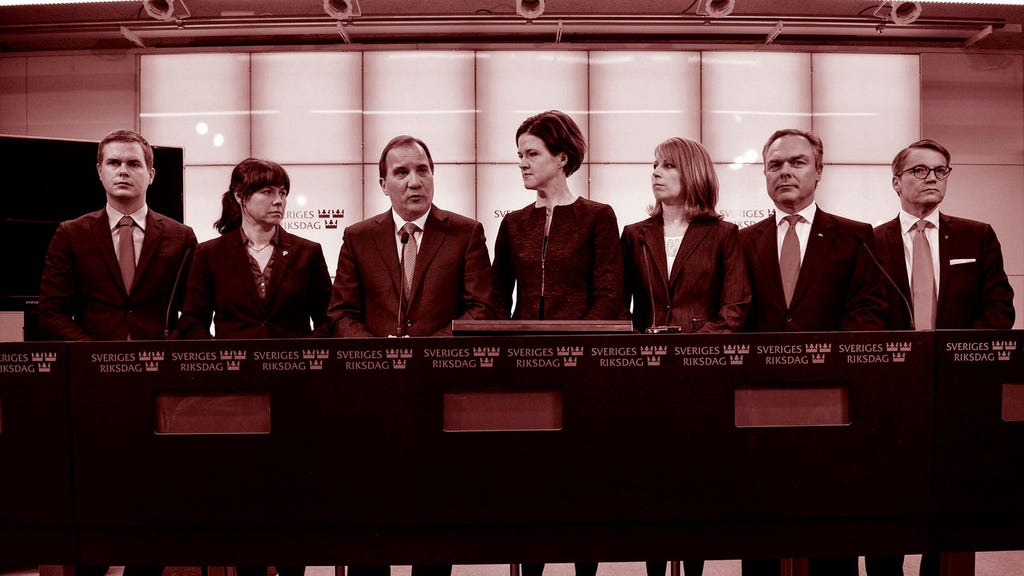The December Agreement, a short-lived political pact forged in Sweden in 2014, continues to cast a long shadow over the nation’s political landscape. This agreement, struck between six political parties – the Social Democrats, the Green Party, the Moderate Party, the Centre Party, the Liberal Party, and the Christian Democrats – was designed to address the challenging situation of minority governments and ensure political stability. It aimed to prevent a situation where extremist parties, specifically the Sweden Democrats, could exert undue influence on government policy. The core principle of the agreement was that the budget proposed by the sitting government, in this case a Social Democrat-Green coalition, would be passed by the parliament even if it lacked a majority, as long as it didn’t actively vote against it. This meant the opposition parties agreed not to side with the Sweden Democrats in voting down the government’s budget.
However, the agreement ultimately unraveled after just two years, primarily due to internal dissent within the Moderate Party. Despite the relatively short lifespan of the agreement, its demise had profound repercussions for Swedish politics, solidifying existing political divides and contributing to the current volatile political climate. The Moderate Party, in particular, emerged from the experience with key internal divisions and a re-evaluation of its political strategy. The party’s subsequent shift towards a more right-wing stance, including a willingness to collaborate with the Sweden Democrats, can be traced back to the fallout of the December Agreement. This shift dramatically altered the political landscape and continues to shape political discourse in Sweden.
One of the primary criticisms leveled against the December Agreement was its perceived undermining of democratic principles. Critics argued that it effectively sidelined the opposition and limited their ability to hold the government accountable. By agreeing not to vote against the government’s budget, even if they disagreed with its contents, the opposition parties essentially relinquished a key tool of parliamentary scrutiny. This, in turn, raised concerns about the transparency and accountability of the government. Furthermore, the agreement was seen by some as a blatant attempt to isolate the Sweden Democrats and prevent their legitimate participation in the political process, despite their growing electoral support. This arguably fuelled resentment among Sweden Democrat voters and contributed to their continued rise.
The Moderate Party’s experience with the December Agreement was particularly fraught. The party’s internal divisions over the agreement ultimately led to its collapse and a subsequent reassessment of its political strategy. Many within the party felt that the agreement had placed them in a disadvantageous position, forcing them to support policies they disagreed with and preventing them from effectively challenging the government. This sense of frustration and powerlessness contributed to a growing sentiment within the party that a more assertive, right-leaning approach was needed. The collapse of the agreement thus served as a catalyst for the Moderate Party’s shift towards the right, a shift that has had significant implications for Swedish politics.
The legacy of the December Agreement is complex and multifaceted. While intended to promote political stability, it arguably had the opposite effect, exacerbating existing tensions and contributing to the current fragmented political landscape. The agreement’s failure highlighted the deep divisions within Swedish politics and the challenges of governing in a multi-party system. It also underscored the profound impact of the rise of the Sweden Democrats and the difficulties mainstream parties faced in responding to their growing influence. The December Agreement serves as a cautionary tale about the unintended consequences of political compromises and the enduring impact of short-lived agreements on long-term political dynamics.
In conclusion, the December Agreement, though brief, left an indelible mark on Swedish politics. Its collapse not only destabilized the political landscape but also triggered a significant shift in the Moderate Party’s political strategy, contributing to their rightward turn and their eventual willingness to cooperate with the Sweden Democrats. The agreement’s legacy continues to be debated, but its impact on the trajectory of Swedish politics is undeniable. It serves as a stark reminder of the complex interplay of political ideals, strategic calculations, and unintended consequences in shaping the course of a nation’s political development. The December Agreement, though a chapter closed, continues to inform the ongoing narrative of Swedish politics.














